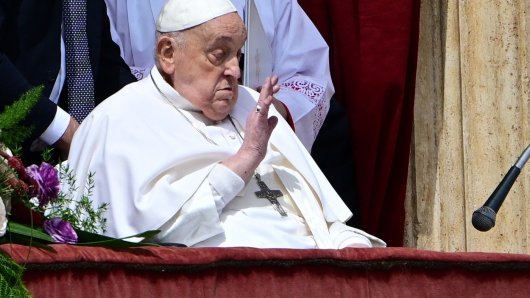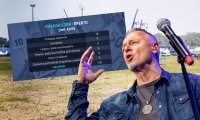The election platform of the coalition of opposition parties led by the Social Democratic Party (SDP) does not advocate painful cuts because they would not contribute to overcoming the economic problems Croatia is faced with, the coalition's leaders said in Split on Saturday, presenting a part of their election platform called Plan 21.
"If we were to make painful cuts, Croatia would not get out of the red in the next few years," the SDP's economic strategist, Branko Grcic, said, adding the coalition supported a re-industrialisation of the country. According to the latest statistics, Croatia's industrial output in September was 4.5 percent down from the previous month, and two percent down from the previous year, he said.
Radimir Cacic, leader of the Croatian People's Party (HNS), which is part of the opposition coalition, said a government led by the opposition coalition would protect Croatian shipyards in case programmes for their privatisation failed. "Shipbuilding is one of our few industries that are close to international standards," said Cacic.
He dismissed claims that the opposition coalition, if it came to power, would lay off 80 percent of people in the public sector. The problem are "the several hundred" incompetent employees in public companies, said Cacic, while SDP leader Zoran Milanovic said that if it came to power, the coalition would not seek revenge. "Those who are guilty should answer before courts and history, we are not judges but politicians who are responsible to voters," said Milanovic.
Speaking of the coalition's economic platform, Gracic said its first objective was to deal with the problem of insolvency, then ease the burden of tax on re-invested profit on entrepreneurs, and temporarily exempt employers from the payment of contributions for the newly employed, who he said would have to be given indefinite term contracts.
"We intend to make order in public finances because the biggest burden of this state is interest on the government debt. Interest expenses account for 50 percent of the difference between the state's revenues and spending which makes a deficit of 15 billion kuna," said Grcic.
Grcic supported organising Croatia into regions and underlined that tourism should become one of the country's key brands.
HNS leader Cacic said that everything in the Croatian tourism industry "was made at the time of the former Yugoslavia... in the period from 1970 to 1980, and the Croatian state today is exclusively an obstacle to tourism."
Answering questions from members of the public, Milanovic said that moving some ministries, such as the tourism ministry, from Zagreb to Split, would not help solve economic problems and that in all EU countries ministries were located in the capitals.
Milanovic also said that with the break-up of Yugoslavia, Croatia was left with the problem of some 20,000 unsolved cases of unregulated tenancy rights and that the opposition coalition would also work to find a solution to that problem.
The SDP leader said the cost of the coalition's election campaign would not exceed 15 million kuna.
Asked what he thought about the construction of the Peljesac Bridge, Milanovic said that it was an interesting idea, but that the time was not right to implement the project. "Croatia can integrate in terms of transport also via Bosnia and Herzegovina because that country is not our enemy."
Speaking of current outstanding claims in the country amounting to some 40 billion kuna, Grcic said they referred mostly to companies without any employees. "The problem of such companies should be solved under fast-track procedure - they should declare bankruptcy and be liquidated," he said, adding the coalition would propose to banks a model envisaging that the ownership of companies which have the state as the creditor be transferred to the state.





































